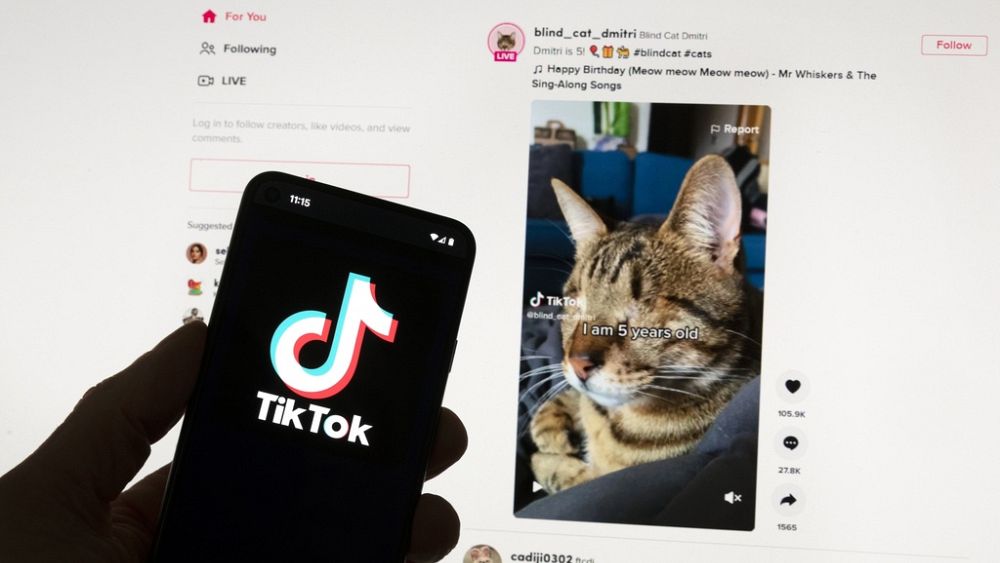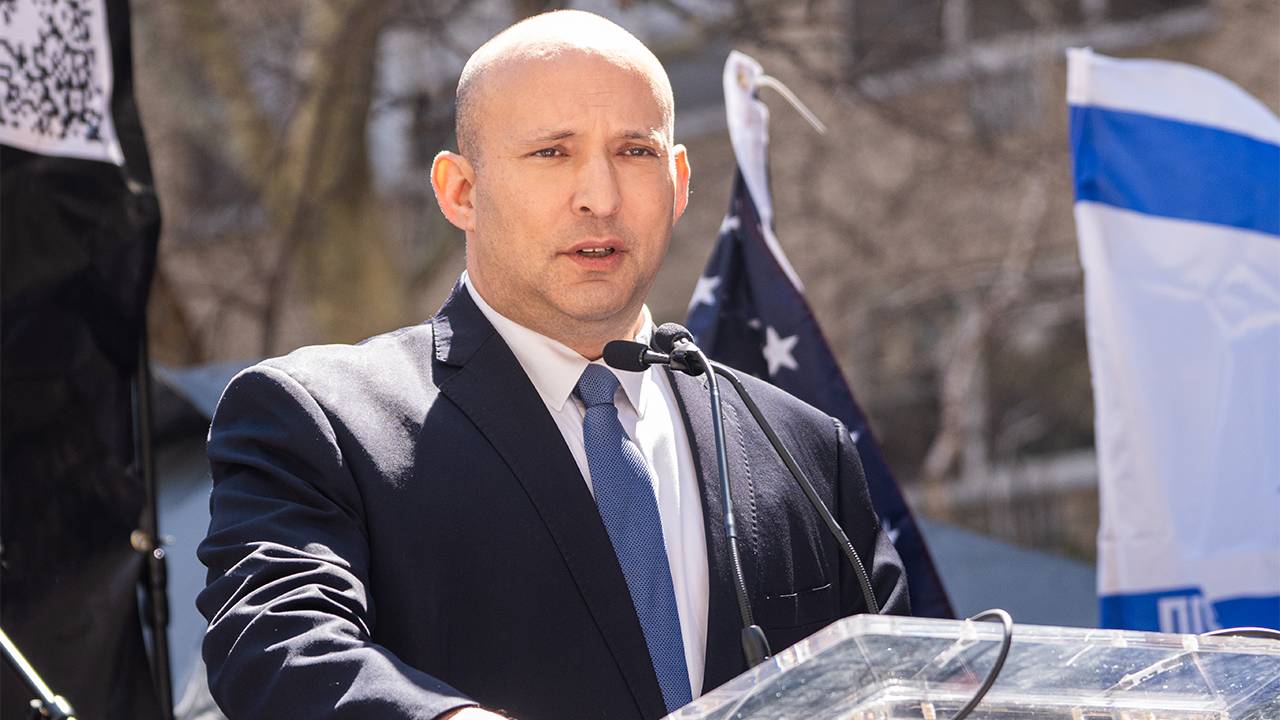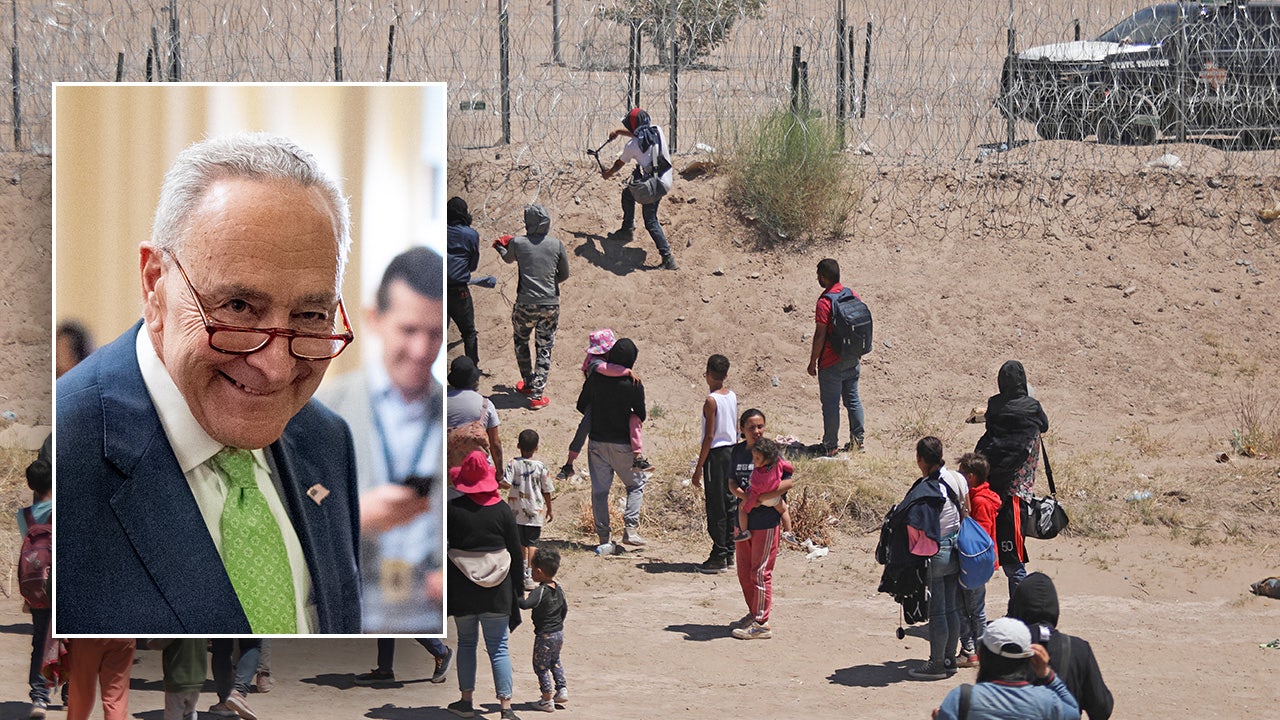World
The DSA, the EU’s biggest ever shake-up of digital regulation kicks in

What’s prohibited offline should be prohibited online – social media platforms reigned in as the EU’s biggest-ever shake-up of digital regulation kicks in
The European Union’s groundbreaking new digital regulations that aim to clean up what people see online came into force on Friday.
The Digital Services Act (DSA) is part of a suite of tech-focused regulations crafted by the 27-nation bloc that is designed to keep users safe online and stop the spread of harmful content that’s either illegal or violates a platform’s terms of service, such as the promotion of genocide or anorexia.
It also looks to protect Europeans’ fundamental rights like privacy and free speech.
So-called Very Large Online Platforms with more than 45 million monthly actives users, which include the likes of Google, Facebook, TikTok, Amazon, X and Youtube, could face billions in fines if they don’t comply.
WHICH PLATFORMS ARE AFFECTED?
So far, 19. They include eight social media platforms: Facebook, TikTok, X, (formerly known as Twitter), YouTube, Instagram, LinkedIn, Pinterest and Snapchat.
Five of the biggest online marketplaces are also included: Amazon, Booking.com, China’s Alibaba AliExpress and Germany’s Zalando.
Mobile app stores Google Play and Apple’s App Store are also affected, as are Google and Microsoft’s search engines.
Google Maps and Wikipedia will also be subject to the new rules.
WHAT ABOUT OTHER ONLINE COMPANIES?
The EU’s list is based on numbers submitted by the platforms. Those with 45 million or more users, or 10% of the EU’s population, face the DSA’s highest level of regulation.
The list isn’t definitive, and it’s possible other platforms may be added later on.
Any business providing digital services to Europeans will eventually have to comply with the DSA. They will face fewer obligations than the biggest platforms, however, and have another six months before they must fall in line.
WHAT’S CHANGING?
Platforms have rolled out new ways for European users to flag illegal online content and dodgy products, which companies will be obligated to take down quickly and objectively.
The DSA “will have a significant impact on the experiences Europeans have when they open their phones or fire up their laptops,” Nick Clegg, Meta’s president for global affairs, said in a blog post.
Asha Allen, from Centre for Democracy &Technology, Advocacy Director for Europe, Online Expression & Civic Space, told Euronews the DSA gives users more control:
“So specifically, users will now have more transparency on how content moderation decisions are made. Users will have more choice regarding the content that they engage in. So, for example, they can opt out of personalised advertising or they can determine that the content that they see is presented in a chronological order rather than based on determinations of the recommender systems that are based on vast amounts of data collection. There will be more mechanisms for complaints and mechanisms for redress for individual users.”
Facebook and Instagram’s existing tools to report content will be easier to access. Amazon opened a new channel for reporting suspect goods.
TikTok gave users an extra option for flagging videos, such as for hate speech and harassment, or frauds and scams, which will be reviewed by an additional team of experts, according to the app from Chinese parent company ByteDance.
Google is offering more “visibility” into content moderation decisions and different ways for users to contact the company. It didn’t offer specifics. Under the DSA, Google and other platforms have to provide more information about why posts are taken down.
Facebook, Instagram, TikTok and Snapchat also are giving people the option to turn off automated systems that recommend videos and posts based on their profiles. Such systems have been blamed for leading social media users to increasingly view extreme posts.
The DSA also prohibits targeting vulnerable categories of people, including children, with ads. Platforms like Snapchat and TikTok will stop allowing teen users to be targeted by ads based on their online activities.
Google will provide more information about targeted ads shown to people in the EU and give researchers more access to data on how its products work.
IS THERE PUSHBACK?
Zalando, a German online fashion retailer, has filed a legal challenge over its inclusion on the DSA’s list of the largest online platforms, arguing that it’s being treated unfairly.
Nevertheless, Zalando is launching content flagging systems for its website even though there’s little risk of illegal material showing up among its highly curated collection of clothes, bags and shoes.
The company has supported the DSA, said Aurelie Caulier, Zalando’s head of public affairs for the EU.
“It will bring loads of positive changes” for consumers, she said. But “generally, Zalando doesn’t have systemic risk (that other platforms pose). So that’s why we don’t think we fit in that category.”
Amazon has filed a similar case with a top EU court.
WHAT IF COMPANIES DON’T FOLLOW THE RULES?
Officials have warned tech companies that violations could bring fines worth up to 6% of their global revenue, which could amount to billions, or even a ban from the EU.
“The real test begins now,” said European Commissioner Thierry Breton, who oversees digital policy. He vowed to “thoroughly enforce the DSA and fully use our new powers to investigate and sanction platforms where warranted.”
But don’t expect penalties to come right away for individual breaches, such as failing to take down a specific video promoting hate speech.
Instead, the DSA is more about whether tech companies have the right processes in place to reduce the harm that their algorithm-based recommendation systems can inflict on users. Essentially, they’ll have to let the European Commission, the EU’s executive arm and top digital enforcer, look under the hood to see how their algorithms work.
Big platforms have to identify and assess potential systemic risks and whether they’re doing enough to reduce them. These assessments are due by the end of August and then they will be independently audited.
The audits are expected to be the main tool to verify compliance although the EU’s plan has faced criticism for lacking details that leave it unclear how the process will work.
WHAT ABOUT THE REST OF THE WORLD?
Europe’s changes could have a global impact. Wikipedia, deemed a Very Large Online Platform, is tweaking some policies and modifying its terms of use to provide more information on “problematic users and content.” Those alterations won’t be limited to Europe and “will be implemented globally,” said the nonprofit Wikimedia Foundation, which hosts the community-powered encyclopedia.
“The rules and processes that govern Wikimedia projects worldwide, including any changes in response to the DSA, are as universal as possible,” it said in a statement.
Snapchat said its new reporting and appeal process for flagging illegal content or accounts that break its rules will be rolled out first in the EU and then globally in the coming months.
It’s going to be hard for tech companies to limit DSA-related changes, said Broughton Micova, a CERRE Research Fellow and a Lecturer in Communications Policy and Politics at the University of East Anglia (UEA). She added that digital ad networks aren’t isolated to Europe and that social media influencers can have global reach.
The regulations are “dealing with multichannel networks that operate globally. So there is going to be a ripple effect once you have kind of mitigations that get taken into place,” she said.

World
Protesters block New Caledonia roads as French police pour in

World
Ex-Israeli PM calls for defunding ICC after court requests arrest warrant for Netanyahu over ‘war crimes’

Former Israeli Prime Minister Naftali Bennett on Monday called for “decent nations” to defund the International Criminal Court (ICC) after a court prosecutor filed applications for arrest warrants against Israeli Prime Minister Benjamin Netanyahu, Defense Minister Yoav Gallant and Hamas leaders for alleged “war crimes.”
Prosecutor Karim Khan said his office had collected evidence to give “reasonable grounds” to believe Netanyahu and Gallant “bear criminal responsibility for… war crimes and crimes against humanity committed on the territory of the State of Palestine.”
Khan said those alleged crimes include “starvation of civilians as a method of warfare” and “intentionally directing attacks against a civilian population.”
He said he is also seeking arrest warrants for Hamas leader Yahya Sinwar, its top political leader Ismail Haniyeh, and its military commander Mohammed Deif.
AMAL CLOONEY PLAYED KEY ROLE IN ICC ARREST WARRANTS FOR NETANYAHU, HAMAS LEADERS
Former Prime Minister of Israel Naftali Bennett speaks at the “Bring Them Home” rally in support of Israeli hostages outside the UN Headquarters on April 07, 2024 in New York City. (Noam Galai/Getty Images)
Bennet said the prosecutor’s request was “a moment of shame for the ICC and the world community” and provided “a huge boost to global Jihadi terror.”
“An ICC that compares the executor of a deliberate murderous attack that included raping women and burning babies, with those who are defending themselves against it, is better off not existing,” Bennett said. “It’s time for the decent nations to defund the ICC.”
He included the hashtag: “DefundTheICC.”
Netanyahu and other Israeli leaders condemned the move as disgraceful and antisemitic. U.S. President Joe Biden also lambasted the prosecutor and supported Israel’s right to defend itself against Hamas.
A panel of three judges will decide whether to issue the arrest warrants and allow a case to proceed. The judges typically take two months to make such decisions.
Israel is not a member of the court, so even if the arrest warrants are issued, Netanyahu and Gallant do not face any immediate risk of prosecution. But the threat of arrest could make it difficult for the Israeli leaders to travel abroad.
Fox News Digital’s Greg Norman and The Associated Press contributed to this report.
World
‘Lone wolf’ or JI?: Jemaah Islamiyah confusion after Malaysia attack

Medan, Indonesia – Malaysia has been the target of a rare deadly attack after a man armed with a machete struck a police station in southern Johor state, killing two police officers and injuring a third.
Initially, Malaysian police said they suspected Friday’s incident was linked to the hardline group Jemaah Islamiyah (JI) and was probably an attempt to steal weapons. Speaking to the media after the attack in the town of Ulu Tiram, Inspector General of Police Razarudin Husain said police raided the suspect’s house and discovered “JI-related paraphernalia”.
Five members of his family were arrested, including the suspect’s 62-year-old father, who police said was a “known JI member”. Two other people, who were in the police station making a report at the time of the attack in the early hours of Friday morning, were also detained.
But on Saturday, Malaysia’s Minister of Home Affairs Saifuddin Nasution Ismail appeared to backtrack on the JI connection, describing the attacker as a “lone wolf” who was “driven by certain motivations based on his own understanding because he rarely mixed with others”.
Former members of JI in Indonesia told Al Jazeera that an attack by the group on Malaysian soil seemed unlikely.
Speaking from prison in Indonesia’s capital Jakarta, where he is serving a life sentence for his role in JI’s 2002 Bali bombing, which killed more than 200 people, Ali Imron told Al Jazeera that JI’s profile in Malaysia did not seem to fit the police station attack.
“There have never been any JI members in Malaysia who agreed to commit acts of violence like this,” he said. “Before the Bali bombing, there were attacks in Malaysia, but these were committed not by JI but Kumpulan Mujahidin Malaysia [KMM].”
KMM, a hardline group linked to JI, carried out small-scale attacks in Malaysia in the early 2000s.
Rueben Dass, a senior analyst at the S Rajaratnam School of International Studies in Singapore, noted that JI had never previously mounted attacks in Malaysia.
“Malaysia was always considered an economic region for JI, not the focus of attacks,” he told Al Jazeera. “The Malaysian authorities were always vigilant and aware, particularly after KMM became active. They have been on their toes and carried out a wave of arrests in the early 2000s of JI members.”
Since then, he said, JI had maintained a low profile.
“To see them coming up again is a little surprising,” he added.
Indonesia, which saw a spate of JI attacks in the late 1990s and early 2000s – including attacks on churches on Christmas Eve 2000, the Bali bombings and the 2003 attack on Jakarta’s JW Marriott Hotel – has also been largely successful in clamping down.
In 2003, with funding and training from the United States and Australia, it established the Counterterrorism Special Detachment 88 (Densus 88), and later set up a National Counterterrorism Agency (BNPT).
Indonesian authorities have also pioneered a range of deradicalisation programmes, using former members of hardline groups including JI, with recidivism rates at about 11 percent, according to the Institute for Policy Analysis of Conflict, a Jakarta-based think tank.
History of JI
JI was founded by Indonesian Muslim scholar Abu Bakar Bashir and Abdullah Sungkar in 1993, with a mission to establish an Islamic caliphate across Southeast Asia.
The group has historically been linked to al-Qaeda, from which it reportedly received funding and training in the 1990s and early 2000s. It has had members in Indonesia, Malaysia, Singapore, Cambodia and the Philippines.
JI was officially banned in Indonesia in 2007, leading to the group splintering. Some members focused on dakwah or proselytisation, while others continued to plot violent attacks. Arrests have continued across the region with members accused of stockpiling weapons and bomb-making equipment.
According to open source data, between 2021 and 2023, out of 610 people arrested In Indonesia, 42 percent were JI and 39 percent were from other hardline groups – including Jamaah Ansharut Daulah (JAD) and other pro-Islamic State groups.
The majority of JI senior figures have been either executed, shot dead in police raids or jailed.
Both Bashir and Sungkar lived in Malaysia in the 1980s and 1990s, in addition to senior members such as Indonesian Encep Nurjaman (alias Hambali) and Malaysians Noordin Mohammed Top and Azahari Husin. Ali Ghufron (alias Mukhlas), Amrozi bin Nurhasyim and Imam Samudra, the masterminds of the Bali bombing, also spent time in Malaysia.
Hambali was arrested in Thailand in 2003 and is currently awaiting trial at Guantanamo Bay in Cuba, while Samudra, Amrozi and Mukhlas were executed in 2008. The two Malaysians were shot in separate police raids in Indonesia in 2005 and 2009.
Before his death, Noordin ran the Luqmanul Hakiem Islamic boarding school in Malaysia, which was founded by Bashir and Sungkar and was in Ulu Tiram, close to the home of the suspect of Friday’s attack.
Malaysia closed the school in 2002 amid suspicions it was being used to recruit people to JI.
Style of attack
While the profile of the suspect’s father, and the proximity to Luqmanul Hakiem, might have suggested a JI connection, Imron cautioned against such an analysis.
“If the son followed his father, there is no way he would have committed this act, so there is a strong possibility that he was inspired by ISIS [ISIL],” Imron said, suggesting the Malaysian authorities had “jumped to that conclusion.”
Umar Patek, who was released from prison in 2022 after serving 11 years of a 20-year sentence for mixing some of the chemicals used in the Bali Bombing, told Al Jazeera that he “did not believe” that the attacker was a member of JI and agreed that the attack appeared to have the hallmarks of another group.
“I am very doubtful,” he said. “I don’t understand it, especially carrying out a violent attack. It is impossible in my view that it was JI, but it is possible that it was ISIS.”
The style of the attack has added to the scepticism, as the targeting of a police station and Muslim police officers is inconsistent with JI’s attacks in Indonesia. There, it has been ISIL-inspired hardline groups, including JAD, that have attacked police stations, seeing them as representative of the state.

Judith Jacob, the head of Asia for the risk analysis and intelligence company Torchlight, told Al Jazeera that the most unusual aspect of Friday’s attack was the location.
“While Malaysian militants have been key figures in JI and Philippine-based groups, there are few indications of sophisticated plots targeting Malaysia specifically in recent years,” she said.
However, while Malaysia and Indonesia have not seen anything like the levels of violence of the early 2000s, attacks have not been completely eradicated – with a pattern of more opportunistic and low-level violence emerging.
“The attack in Malaysia remains squarely within the wheelhouse of regional Islamist militant groups – that is to say, it is a relatively unsophisticated assault,” Jacob said.
“Indonesian groups, in particular, have been largely unable to conduct the large-scale attacks or coordinated bombings that were a hallmark of JI in its heyday in the 2000s. Militant groups in the Philippines are more capable, but they too have been unable to conduct sophisticated bombings beyond the southern islands.”
-

 News1 week ago
News1 week agoSkeletal remains found almost 40 years ago identified as woman who disappeared in 1968
-

 Movie Reviews1 week ago
Movie Reviews1 week ago“Kingdom of the Planet of the Apes”: Disney's New Kingdom is Far From Magical (Movie Review)
-

 World1 week ago
World1 week agoIndia Lok Sabha election 2024 Phase 4: Who votes and what’s at stake?
-

 World1 week ago
World1 week agoUkraine’s military chief admits ‘difficult situation’ in Kharkiv region
-

 Politics1 week ago
Politics1 week agoTales from the trail: The blue states Trump eyes to turn red in November
-

 World1 week ago
World1 week agoCatalans vote in crucial regional election for the separatist movement
-

 Politics1 week ago
Politics1 week agoNorth Dakota gov, former presidential candidate Doug Burgum front and center at Trump New Jersey rally
-

 News1 week ago
News1 week agoTrump, Reciting Songs And Praising Cannibals, Draws Yawns And Raises Eyebrows

















